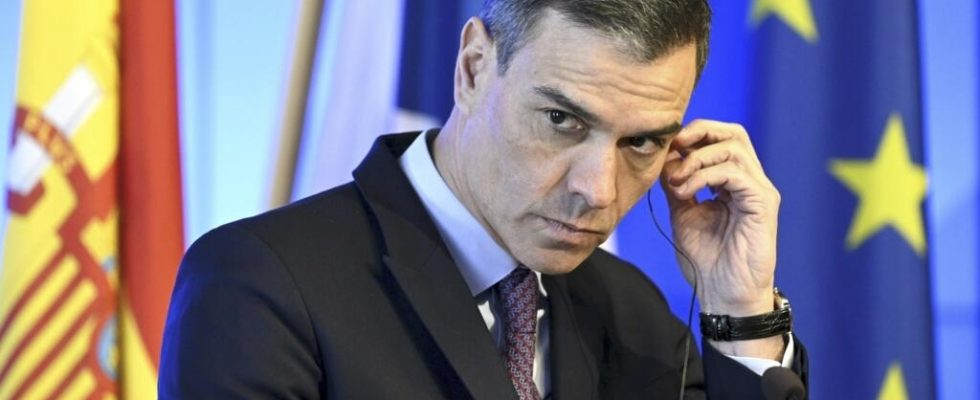From this Saturday, July 1, Spain will take over the Presidency of the European Council for the next 6 months. A presidency which promises to be a little complicated given the Spanish electoral calendar since the current head of government, Pedro Sanchez, has called general elections for 23rd July next. And after the defeat of the left in the regional and municipal elections, these legislative elections could well give rise to a political alternation, which risks further paralyzing a presidency which many say does not expect much.
The announcement of the calling of legislative elections in Spain for July 23 took the Spaniards by surprise, but also the European institutions, who were counting on a ballot at the end of the year and therefore a more stable European presidency.
Because if the objectives of this presidency have already been set, in particular concerning the stability pact, a flagship file that Madrid coordinates, a possible alternation at the head of the Spanish government could well change the situation.
The latest polls give the People’s Party, a conservative formation in the lead, but without an absolute majority. A coalition with the far-right formation Vox is envisaged, which could allow this new coalition, within the framework of the presidency of the European Council, to propose new amendments.
But as confirmed by many specialists of the European institutions, if by chance a new management team arrives, its possibilities to modify the calendar of the Spanish presidency will be very limited since the duty of the country which assumes this role is to speak on behalf of the 27 member countries. It is therefore a particular presidency to be expected, knowing that in addition to the European elections must be held in 2024.
In the meantime, the Pedro Sanchez government has displayed the ambitions of its European presidency: Spain hopes to complete the new European migration policy before the end of the year, defend the reindustrialisation of Europe, reform the electricity market , or to relax European budgetary rules.
Economic issues have been at the center of European discussions, especially since the pandemic and since the Russian invasion of Ukraine. This observation will not change under the Spanish Presidency. And concerning the European budgetary rules, the government wants the Union to take into account the specificity of each Member State. With the aim of encouraging investment in priority sectors such as the energy and digital transition.
Raquel Garcia, researcher at the Real Instituto Elcano, in Madrid
